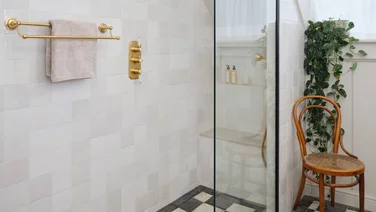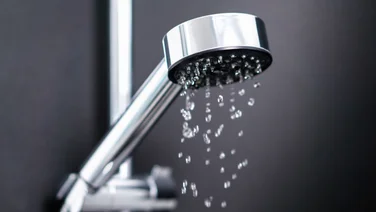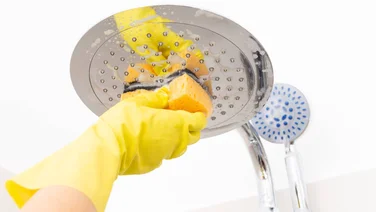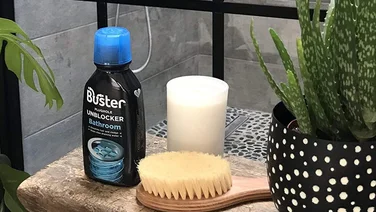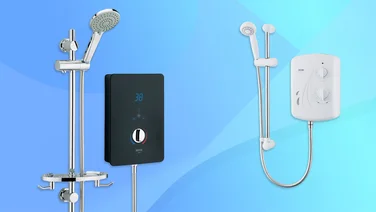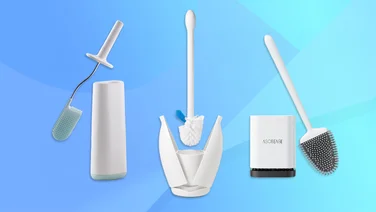To help us provide you with free impartial advice, we may earn a commission if you buy through links on our site. Learn more

In the market for a new shower to grace your bathroom? Then it’s likely that your choice will come down to two of the most common options: electric vs mixer showers. That said, the two are very different, each offering a range of benefits, while also coming with a few disadvantages that it pays to be aware of.
Everything from your budget to your water pressure, and from the size of your bathroom to who will be using it the most needs to be taken into account when choosing a new shower. But if all this sounds a little daunting, fear not – our guide is here to help you make the best decision for your particular needs.
We’ve reached out to a range of experts for their pros and cons of both electric and mixer showers. By following their to ensure you can make an informed decision that will meet your expectations and provide a satisfying shower experience every dy, for years to come.
What is an electric shower?
Before getting started, it is important to understand a little bit more about each type of shower. Electric showers take cold water directly from the mains before passing it over a heated element within the shower itself, bringing the water up to your required temperature to be distributed from your shower head.
“Unlike traditional showers, electric showers require cold water only and do not need access to a hot water tank or a boiler,” says Kerry Hale, bathroom expert at Mira Showers. “When you turn on an electric shower, it instantly heats the cold water using electricity, providing you with a hot shower.” Therefore, if your boiler breaks down, you’ll still be able to enjoy a relaxing, steamy shower without having to wait for a repair.
What is a mixer shower?
In comparison to an electric shower, a mixer shower takes water from both a hot water and cold water supply, combining them through an internal valve to produce your desired temperature. The hot water is most commonly provided via a combi, system or regular gas boiler.
“A mixer shower can produce a stronger flow than electric showers and are compatible with gravity-fed and mains pressure systems,” explains Kerry Hale.

Electric vs mixer showers: your key considerations
Best for initial cost
The first thing that you are likely to be looking at when buying a new shower is how much it will impact your bank balance.
In general, electric showers are slightly cheaper in terms of their initial cost than mixer models, but it is close and will depend on the features of the shower. “A mixer shower tends to cost slightly more than an electric one, particularly those with a thermostatic function,” confirms Jeevan Seth, CEO of shower and tap manufacturer JTP.
You are likely to want a mixer shower with a thermostatic valve, as this will monitor and prevent any sudden change in water temperature that could lead to a sudden gush of icy cold or scalding hot water
According to My Builder, costs for an electric shower unit generally sit between £150 and £500, whereas a mixer shower can cost between £150 and £800. And a quick glance at Wickes’ shower offering shows a Triton Riba 8.5kW electric shower available for £70, whereas its cheapest own-brand mixer shower comes in at just £60. The cheapest thermostatic option is the Alban thermostatic mixer shower, £80.
What makes more of a difference when it comes to initial outlay is that electric showers are often simpler and quicker to install than mixer showers. Henry Paterson, Digital Marketing Manager at home-maintenance providers Housekeep estimates that: “A mixer shower can cost anywhere between £225 – £540 (inc. VAT) for installation, whereas an electric shower will set you back from £150 – £360 (inc. VAT).”
Winner: Electric shower
Best for ongoing running costs
Initial unit prices are just one element of how much a shower will set you back – you also need to be thinking long term and take into account running costs.
While energy prices are constantly fluctuating, mixer showers tend to be the best option for those concerned about running costs, as Kerry Hale explains.
“Heating water using your existing water supply typically costs less than heating cold water using electricity,” she says. “While electric showers are efficient in terms of energy usage, the cost of electricity can add up if you shower frequently.”
In general, gas tends to be cheaper than electricity, making mixers cheaper to run. That said, much depends on the efficiency of your boiler — you should have it regularly serviced to ensure it is running efficiently.
Winner: Mixer shower
Best for style
There was a time when electric showers were not exactly known for their good looks, often offering little more than a simple white, plasticky box. But things have come a long way since then.
Electric showers now come in all kinds of designs, suitable for both contemporary and traditional bathrooms alike. It is also possible to find sleek, concealed models, such as the Triton Matt Black Thermostatic Electric Shower, available from B&Q, that mean bulky, exposed ‘boxes’ are now a thing of the past.
That said, mixer showers still have the upper hand when it comes to the breadth of choice in terms of style, although for how much longer, time will tell.
Winner: Mixer shower (just!)
Best for larger households
One of the best things about electric showers is that they are unaffected by water being used elsewhere in the property which can make them seem like the perfect choice for busy households. That said, mixer showers, too, have their benefits for homes with lots of occupants and, providing they are fitted with a thermostatic valve, will also offer a steady temperature.
Mixer showers give more in the way of power, providing you have sufficient mains water pressure, so tend to result in a more invigorating showering experience.
While you will never run out of hot water with an electric shower, if you are running your mixer shower from a combi boiler this won’t be an issue either.
Where mixer showers slightly have the edge is that they are cheaper to run on average. That said, if energy efficiency is your overall concern, electric showers do use less water.
Winner: Draw

Best for ease of installation
When it comes to fitting a shower, electric showers offer the quickest and simplest route.
“A mixer shower might offer a more powerful flow when compared to electric showers, but they are more complex to install than electric showers, so a professional plumber should always be hired,” explains Jeevan Seth.
Winner: Electric shower
Best for awkward spaces
In terms of loft conversions and tight spaces, both mixer showers and electric can be specified to suit. That said, given their simpler installation process, when working in cramped areas, electric models tend to be a little easier to fit.
Electric showers are also better for those with no hot water supply. “Electric showers are suited to homes with limited or no hot water supply and are the better option for outbuildings and annexes, where connecting to a hot water system isn’t feasible,” explains Jeevan Seth.
Winner: Electric
When is an electric shower not suitable?
There are certain circumstances when an electric shower just won’t be the right option.
“An electric shower can be unsuitable when the water pressure is insufficient and if a home is better served by an existing hot-water system,” explains Jeevan Seth.
You also need to consider how much you’ll use it.
“While they’re efficient in terms of energy usage, the cost of electricity can add up if you shower frequently,” points out Kerry Hale.
When is a mixer shower not suitable?
Likewise, mixer showers won’t be right for everyone.
“You can’t use a mixer shower in certain situations where the water supply or plumbing system is incompatible,” warns Jeevan Seth. “Mixer showers aren’t advised in homes where there is only cold water or low water pressure.”
If you have your heart set on a mixer shower and live in a home with poor water pressure, don’t fret. “Mixer showers require high water pressure,” explains Kerry Hale. “However, if yours is low, you can fit a shower pump.”

Electric vs mixer showers: the verdict
There is no right and wrong here. Thanks to advances in technology, both mixer and electric showers are fantastic options. That said, some households will benefit from one over the other.
“Deciding between an electric or mixer shower depends on your needs and circumstances,” advises Kerry Hale. “To choose the best shower for your bathroom, consider your home’s water pressure and central heating system and your bathroom’s size and style.
“If you have a small bathroom, an electric shower’s compact wall-mounted box might be beneficial,” continues Kerry. “If you have a combi boiler and value high-pressure showers, you might want a mixer shower.”
“A mixer shower is best for homes where there is a reliable supply of both hot and cold water, often from a boiler or water heater,” advises Jeevan Seth.

